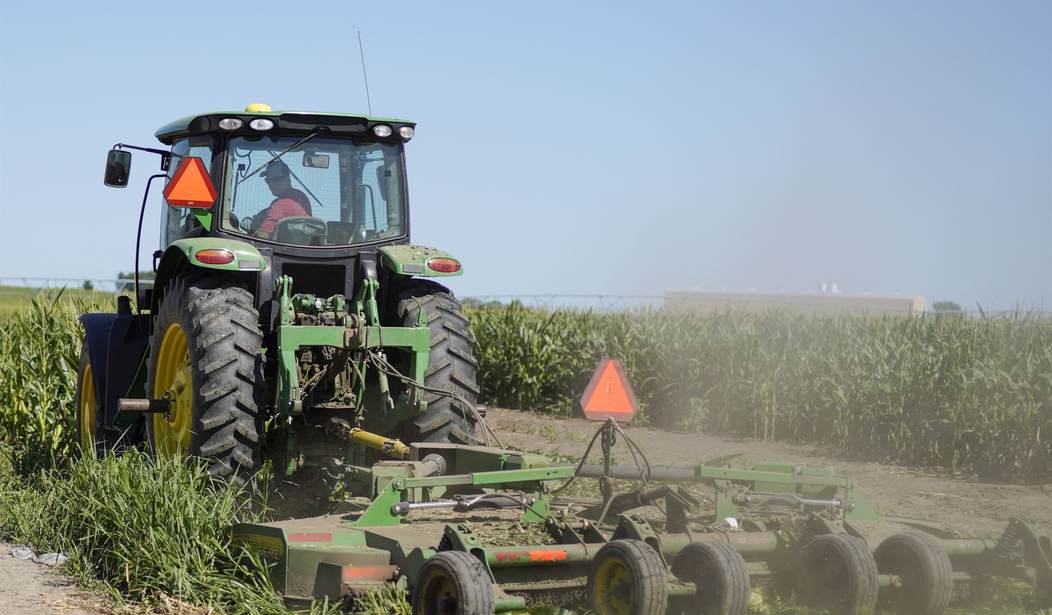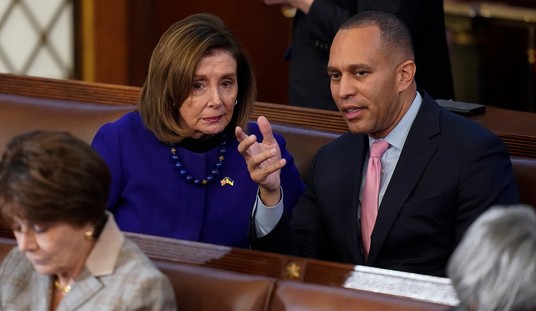Before European Union President Jean-Claude Juncker agreed to import more soybeans on Wednesday, the U.S. government agreed to a $12 billion bailout for American farmers who had been adversely affected by President Trump's tariffs on certain imports from China, the EU, Canada and Mexico. Those targeted nations retaliated by placing their own tariffs on U.S. agricultural exports.
To help alleviate the unfortunate consequences on American farmers, the Department of Agriculture has announced its billion dollar band-aid. The administration did not need congressional approval for the aid package because they are allowed to take it from the U.S. Treasury under the Commodity Credit Corporation, a Department of Agriculture agency created in 1933.
The CCC is allowed to draw funds from the U.S. Treasury without needing any additional authorization from Congress. According to a Congressional Research Service report, the CCC has "permanent indefinite authority" to borrow money up to a limit set by Congress, which is currently $30 billion.
CCC-funded programs are defined as mandatory spending that don't require congressional appropriation, CRS said. Additionally, the agency is allowed to have nonrecoverable losses and routinely makes several billion dollars of nonrecoverable payments each year.
The administration will be offering direct payments to producers of soybeans, sorghum, corn, wheat, cotton, dairy, and hogs because they were hit especially hard by the tariffs.
Recommended
Lawmakers, especially Republicans, have been pretty vocal about their opposition. Sen. Rand Paul (R-KY) ended his week of defending Trump by coming out strongly against the tariffs.
Tariffs are taxes that punish American consumers and producers. If tariffs punish farmers, the answer is not welfare for farmers — the answer is remove the tariffs.
— Senator Rand Paul (@RandPaul) July 24, 2018
Sen. Ben Sasse (R-NE) said the punitive trade measures are "cutting the legs out from under farmers." He also pushed back at the administration's aid package, which he likened to spending $12 billion on "gold crutches."
In a speech to The Veterans of Foreign Wars of the United States on Tuesday, Trump said farmers will eventually be "the biggest beneficiary" of his tariffs. He asked them to "just be a little patient."
He also defended the trade measures on Twitter Wednesday morning.
Every time I see a weak politician asking to stop Trade talks or the use of Tariffs to counter unfair Tariffs, I wonder, what can they be thinking? Are we just going to continue and let our farmers and country get ripped off? Lost $817 Billion on Trade last year. No weakness!
— Donald J. Trump (@realDonaldTrump) July 25, 2018
In a joint press conference with the EU president Wednesday, Trump was happy to announce the EU would be buying more soybeans. The leaders are also working to resolve the steel and aluminum tariffs.
"The European Union is going to start almost immediately to buy a lot of soybeans," Trump says, adding that's going to help farmers in the Midwest. https://t.co/tsbZhCcoB2 pic.twitter.com/QBn2j8WG0F
— CBS News (@CBSNews) July 25, 2018

























Join the conversation as a VIP Member